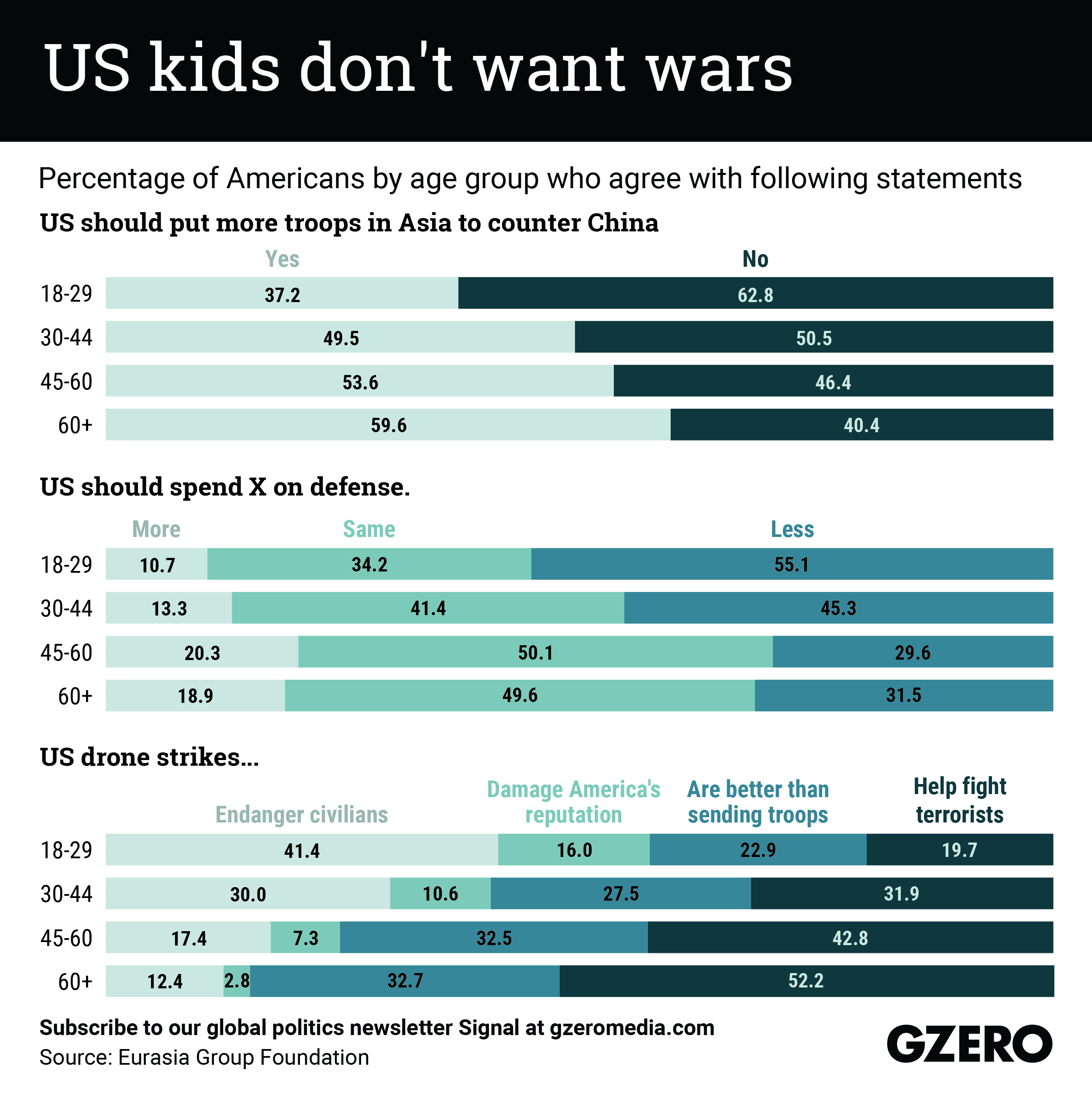October 08, 2021
Today, young Americans' views on US foreign policy are often at odds with the Silent Generation and the Baby Boomers, who vividly remember the great power rivalry of the Cold War. As a result, many of them tend to believe that the US has a responsibility to project power around the world. Of course, what America's youth think matters a great deal, because they'll make up the bulk of the future voting electorate — and thus could determine the direction of US foreign policy for years to come. We take a look at how different age groups feel about US responsibilities on a range of foreign policy issues based on a recent survey from the Eurasia Group Foundation.
More For You
- YouTube
It's one of the few sources Americans across the political spectrum still rely on.
Most Popular
Think you know what's going on around the world? Here's your chance to prove it.
America’s new National Security Strategy confirms what Europeans have feared for months: Washington now sees a strong, unified European Union as a problem to be solved, not an ally to be supported.
Sports inspire greatness, determination, and resilience — both on and off the field. Bank of America is proud to celebrate the achievements of and uplift communities through the power of sports. Learn more about how Bank of America supports athletes in life and in the game.
© 2025 GZERO Media. All Rights Reserved | A Eurasia Group media company.
